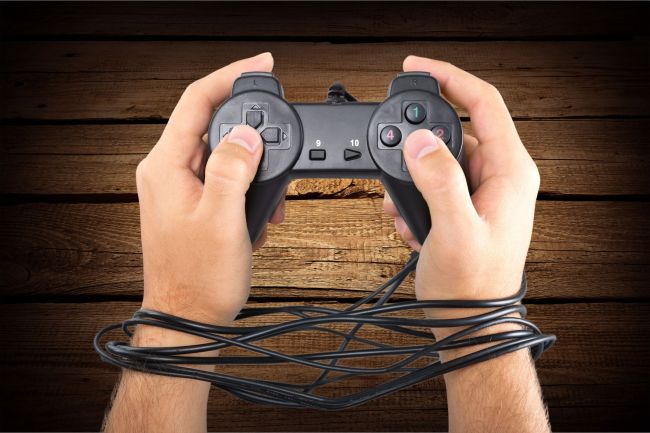The World Health Organization’s latest decision to classify gaming addiction as an official mental health disorder this year has ignited an international controversy.
The issue is gaining particular attention in South Korea -- home to a strong gaming industry and an avid gaming population -- which has long been caught between the responsibility to fight adolescent game addiction and the need to promote the country’s thriving gaming sector.
Last week, the WHO revealed plans to recognize “gaming disorder” as a mental health condition in its next revision of the International Classification of Diseases to be finalized in May this year.
As a result, it will place addiction to video games -- both online and offline games -- in the same category as substance abuse and gambling addiction.
 |
(123RF) |
A
beta draft of the WHO’s 11th ICD describes gaming disorder as a pattern of persistent or recurrent gaming behavior that is so severe that gaming takes precedence over other life interests and daily activities.
It also stipulates that the condition involves a “continuation or escalation of gaming despite the occurrence of negative consequences” and results in “significant impairment in personal, family, social, educational, occupational or other important areas of functioning.”
For a diagnosis to be assigned, the behaviors and features of gaming addiction are normally evident for a period of at least 12 months, though the required duration may be shortened if the symptoms are severe, it said.
This is not the first time that gaming addiction has been identified as a major public health issue and governments around the world have made formal and informal moves to address it.
In the case of Korea, the government has placed a law that bans children under the age of 16 from accessing online games between midnight and 6 a.m., though its effectiveness has been challenged.
Initiated in November 2011, the so-called “shutdown law” mandates online game companies to program their games to automatically shut out minors during the designated six-hour timeframe.
Its proponents argue that the law protects minors from an environment that is more likely to lead to game addiction, while critics say the law breaches the freedom of choice, unjustly vilifies games as a whole, and brings more losses than gains.
The law has caused economic damages as well. According to a 2015
report from the Korea Economic Research Institute, the “shutdown law” led the Korean gaming market to shrink by roughly 1.16 trillion won ($1.09 billion).
And although the KERI report concluded that the law would save 37 billion won in societal costs, it estimated that these savings would be five times larger if a selective approach was used — meaning the shutdown is not applied unilaterally, but enforced only when a parent requests it.
While recognizing the problems of gaming addiction and the need for solutions, the Korean gaming sector cited concerns over a medical labeling of the condition and its potential to cast all video games in a negative light.
“It’s worrisome that the WHO is pushing to medicalize game addiction as a formal mental disorder while the medical community believes there is still a lack of objective evidence to define and diagnose gaming addiction,” an official from the Korea Association of Game Industry told The Korea Herald.
“If the WHO decides to incorporate gaming addiction (into its ICD revisions), it will bolster negative perceptions toward online video games,” he said. “It’s particularly concerning as games are part of a cultural content business that is sensitive to public opinion.”
An official from a local gaming company, who declined to be named, said that the change “has the potential to blur the line between enthusiastic gamers and gaming addicts, particularly in the view of concerned parents.”
If gaming addiction does get included in the revised ICD in May, the change is most likely to be reflected in the disease categorization systems of countries worldwide including Korea.
Right now, the medical community does not recognize gaming addiction as a formal disorder. The latest edition of the Diagnostic and Statistical Manual of Mental Disorders, published in 2013 and referred to by many psychiatrists, lists internet gaming disorder as “a condition for further study.”
By Sohn Ji-young (
jys@heraldcorp.com)







![[Weekender] Korea's traditional sauce culture gains global recognition](http://res.heraldm.com/phpwas/restmb_idxmake.php?idx=644&simg=/content/image/2024/11/21/20241121050153_0.jpg)
